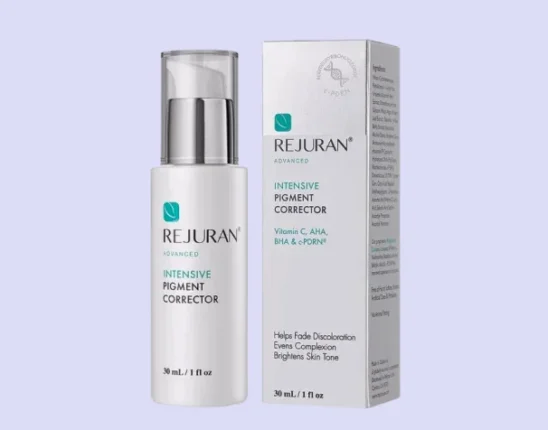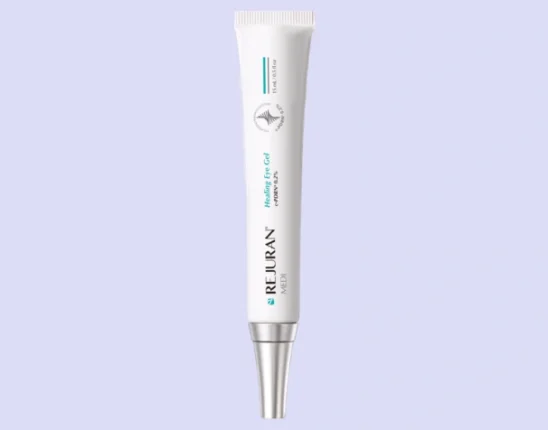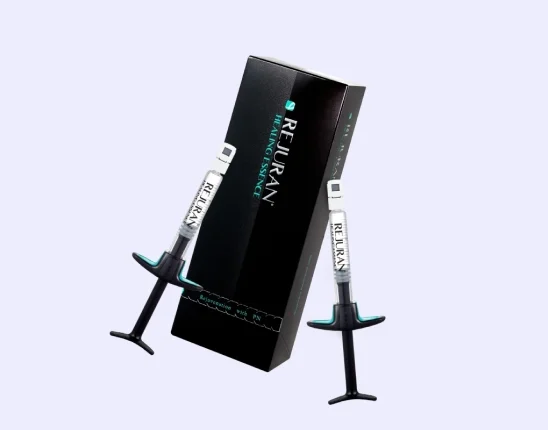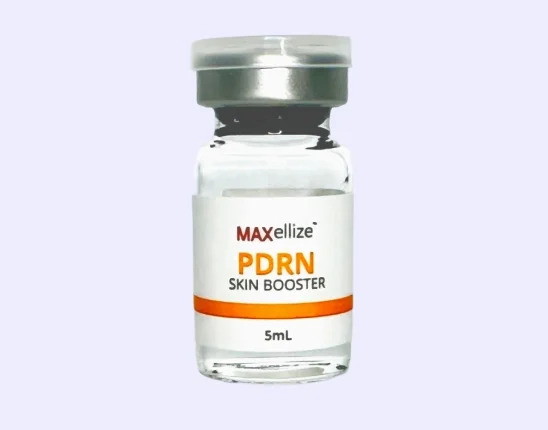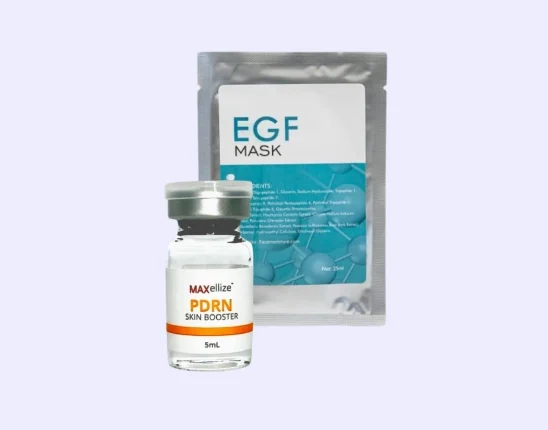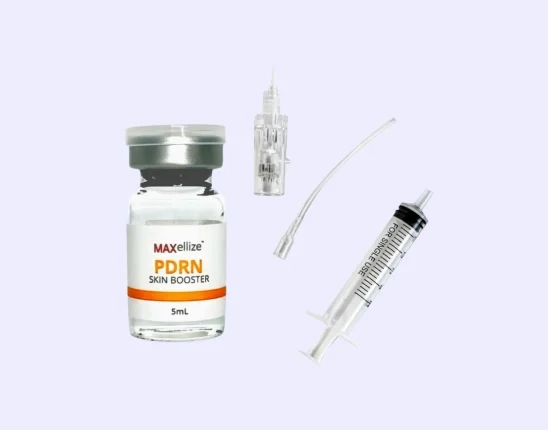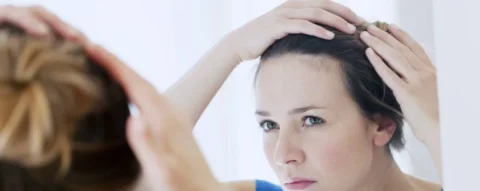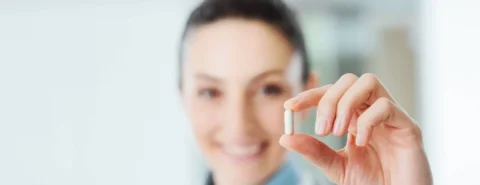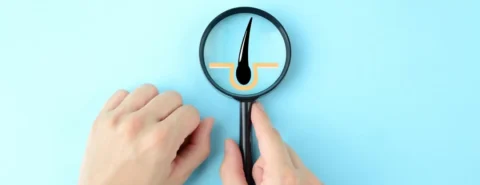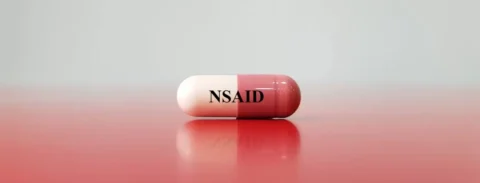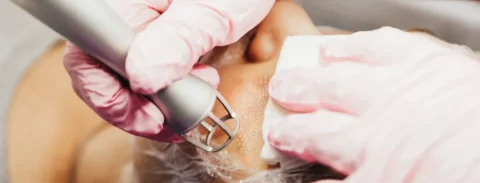The hair growth-promoting activity of many formulations is always being assessed in the hopes of helping hair loss patients. Currently, trends are shifted into looking at therapeutic properties of natural products and their bioactive compounds, such as of Laminaria japonica and Undaria pinnatifida.
So what are the hair growth effects of Laminaria japonica extract and growth factor mixture? A study conducted on a mouse model showed the promotion of hair growth by a mixture containing L. japonica extract and growth factor increased the expression of IGF-1 (an anabolic factor) while decreasing the expression of TGF-B (a catabolic factor).
Laminaria japonica Extract And Growth Factor Mixture Effects On Hair
Laminaria japonica, a type of brown seaweed, was extracted using the patented Low-Temperature Nano-Extraction Method of JW Bio Co., Ltd. In this patented protocol, the bioactive substances were extracted into nano particles without thermal damage which was then absorbed into 0.02-0.05 mm pores. The extract was then developed into a tonic that was demonstrated to have hair growth-promoting activity on its pre-animal testing and clinical trial.
With that, a study by Lee, et al. (2016) on transgenic mice was done to further improve this formulation and produce a type of hair regrowth drug against androgenetic alopecia by adding hair growth factor on the L. japonica extract. This study compared the addition of insulin-like growth factor-1 (IGF-1) and vascular endothelial growth factor (VEGF) on the extract and found out that IGF-1 is a better additive for the mixture than VEGF since IGF-1 promoted better hair growth.
How The Hair Growth Effects of Laminaria japonica Extract And Growth Factor Mixture Was Determined On A Mouse Model
In the study by Lee, et al. (2016), a hair tonic made of Laminaria japonica was mixed with growth factors, and the hair growth-promoting effect of this mixture was assessed on a mouse model. The following are the experimental protocols to determine the efficacy of a mixture of L. japonica and growth factor in promoting hair growth.
Preparation Of The Mixture And Experimental Groups
The L. japonica extract tonic obtained from JW Bio Co., Ltd. was mixed with the growth factors IGF-1 and VEGF. These mixtures were then subjected to two experiments with different setups.
| First experiment | Mice group where only saline was applied as the negative controlMice group where 50% ethanol was applied as the solvent controlMice group where L. japonica extract was appliedMice group where L. japonica extract mixed with 50 ppb IGF-1 was appliedMice group where L. japonica extract mixed with 50 ppb VEGF was applied |
| Second experiment | Only IGF-1 and L. japonica mixture was tested, although they used different concentrations of IGF-1 on the different mixtures: 25 ppb, 50 ppb, and 100 ppb. |
Removal Of Hair And Application Of Mixtures
Niclean cream was used to remove the hairs on the dorsal skin of the mice. 150 uL of the mixtures previously described were then applied to the dorsal skin where hair was removed.
Hair Re-Growth Scoring System
On days 1, 4, 7, 10, and 14 after the initial treatment, the conditions of the hair growth in mice were observed by gross inspection. Taking photographs of mice that are mildly anesthetized using an 8:2 ratio of Zoletil and Rompun diluted with 10-fold normal saline were then done everyday to check for hair growth. Hair growth scores were provided by following a system: 0-25% (-), 25-50% (±), 50-75% (+), and 75-100 (++).
Gross Hair Analysis
A high-resolution hair analysis system was used to measure the following parameters on mice on days 1, 4, 7, 10, and 14 after the initial treatment:
| Hair Density | Hair counts per 0.4 squared mm were determined to measure the hair density. |
| Hair Follicle Length and Hair Thickness | Hair follicle length and hair thickness were determined by taking 20 hairs from the dorsal skin using pincers and averaging the corresponding values from these hairs. |
Histological Analysis
On the 14th day of the experiment, the mice were anesthetized. and the dorsal skin where the solutions were topically applied were surgically dissected away from the mice using No. 15 surgical blade. The fixative used was 10% formalin, the embed used was paraffin, and the stain used was hematoxylin & eosin (H&E) stain. The 5 um slices of skin was observed under optical microscopes.
Molecular Analysis
Molecular analysis of hair follicle mRNA of mice was done to check for the expression of IGF-1, TGF-B, and glyceraldehyde-3-phosphate dehydrogenase (GAPDH, which served as the internal control). The molecular analysis used were reverse transcription polymerase chain reaction (RT-PCR) and real-time PCR.
Other Uses Of Laminaria japonica
Laminaria japonica also has other properties that makes its use really good for the body. Aside from its hair growth-promoting activity, other health benefits of L. japonica include its skin moisturizing effect, nutritional benefits, and digestive health.
1) Skin Moisturizer
A study has shown that 5%-10% concentrations of Laminaria japonica extracts is a promising additive to moisturizers because of the hydrating properties that they possess. L. japonica extracts can help induce the natural processes in the skin that can lock on moisture. They can also help produce a protective barrier against moisture loss. In addition to these moisturizing benefits, L. japonica can also provide antimicrobial, antioxidant, and anti-inflammatory effects.
2) Digestive Health
The fibers found in brown seaweed promote positive effects on an individual’s digestive health. It’s shown to help an individual have bulk stools which is a factor that can help prevent colorectal cancer.
A protective layer in which digestive enzymes can also act upon is also provided for by L. japonica, which can help suppress gastrointestinal inflammation.
The action of gut microbiomes, which are the probiotics or good bacteria found on the gut, is also encouraged by L. japonica as the polysaccharide fiber is indigestible by human enzymes and the microbiota are the ones that act on them.
3) Helps Reduce The Risk Of Obesity
Laminaria japonica makes an individual feel full more easily especially because the digestion of food is slowed down by the fiber of this brown seaweed, thus helping to bring down the calories taken per meal. This thus provides evidence that L. japonica can help reduce the risk of obesity and may be used as a meal for weight loss.
4) Helps Promote Cardiac Health
Lipid metabolism is improved by L. japonica through emulsification and interfering with lipid micelle formation. The alginic acid content of L. japonica is shown to promote a decrease in cholesterol levels. These are factors that may help promote better cardiac health and help reduce the risk for cardiovascular diseases.
Safety Of Laminaria japonica
There isn’t enough information on determining the effects of Laminaria japonica when applied to the skin so caution must be done when applying this topically especially because some people are allergic to Laminaria.
Caution must also be taken when taking oral supplements of L. japonica because some supplements contain as much as 1000 mcg of iodine, which may worsen thyroid diseases. Although when taken as food, L. japonica is known to be safe although some people may experience acne problems or worsening of thyroid diseases.
Other Combinational Treatment For Hair Growth
The beneficial effect on hair growth of other natural products as a combinational treatment that are added to brown seaweed were also analyzed in other clinical studies. These studies combined Undaria pinnatifida and Cistanche tubulosa with brown seaweed.
Note also that Saccharina japonica and Laminaria japonica are referring to the same thing, renaming of species occur in the scientific community after determining some properties that make them fall on a better classification.
1) Saccharina japonica and Undaria pinnatifida
In a study by Park & Park (2016), the effects on hair growth of the mixture of S. japonica and U. pinnatifida, otherwise referred to as L-U mixture, were determined. The effect of this hair growth solution was also compared to the hair growing effects of 3% minoxidil.
The experimental protocols followed by this study is similar to that described above. The hairs on the dorsal skin of mice were removed, followed by the twice daily application for 14 days of the following mixtures: saline, 50% ethanol, 3% minoxidil, L-U mixture. The hair growth in the dorsal skin following the treatments were then determined using high-resolution hair analysis system, microscopic analysis with use of H&E as stain, and molecular analysis using real-time PCR.
The results show that there was an increased expression of IGF-1 in the mice treated with the L-U mixture while there was an increased expression of VEGF in the mice treated with 3% minoxidil. Despite these differences on the hair growth factors expressed, results still show that the hair growth effects of the mixtures were comparable so the L-U mixture is a promising alternative medicine for hair loss.
2) Laminaria japonica and Cistanche tubulosa
The hair stimulating effects of L. japonica and C. tubulosa were determined in a study by Shin, et al. (2015). These hair growth effects of the mixture of these seaweed extracts were also compared with the hair growth effects of 3% minoxidil.
The experimental protocols followed by this study is also similar with those described above although with slight modifications. It also used a mouse model in which the hair in the dorsal skin of mice were shaved upon confirmation of anagen phase and clipping in telogen phase. Oral administration of the mixtures were done once a day, in a schedule similar to the topical application of 3% minoxidil. Observation of hair growth was done grossly via photographs, microscopically using H&E stain, molecularly by using assays for enzyme activity, and serologically using enzyme-linked immunosorbent assay (ELISA).
The results of the study also showed that the mixture of seaweed extracts up-regulated the expression of hair growth factors that are different than that of 3% minoxidil. It was shown that the mixture of seaweed extracts increases the expression of epidermal growth factor (EGF) in the skin while 3% minoxidil increases the expression of EGF and VEGF.
Other Natural Products For Hair Growth
Natural products are a classification of complementary and alternative medicine which are promising in terms of bringing beneficial effects on hair growth.
Aside from their anti-inflammatory activities, native plant and other botanical products have also found their application for hair loss as they may provide additional sources of compounds that may help promote the development of hair follicles and exert their effects on the hair growth cycle.
Some of the botanical products that may provide positive effects on hair growth include curcumin, garlic gel, onion juice, pumpkin seed oil, rosemary oil, and saw palmetto.
PEP Factor: Treating Patients With a Trusted Hair Loss Solution
Laminaria japonica and growth factor mixture is a promising solution that may be used for hair growth promotion. However, clinical trials and studies on the safety profile of this mixture are still needed to ascertain its usability.
At FACE Med Store, we offer PEP Factor, a natural product that’s proven also to be effective in improving the appearance of thinning hair. It’s made up of active ingredients such as basic Fibroblast Growth Factor (bFGF) and copper peptide which are known to have cell proliferating and antioxidant activity. Its topical application also ensures its high safety profile, having only known minimal side effects such as mild redness.
PEP Factor also has a wide variety of uses, such as its known benefit of skin rejuvenation and brightening, which may be complemented by the benefits brought by other cosmetic procedures such as microneedling.
Shop At FACE Med Store For Supplementary Treatments For Healthy Hair
The continuous search for the treatment of hair loss to help patients were not in vain. Studies such as that conducted in L. japonica extract and growth factor mixture have indeed demonstrated an improvement in the appearance of thinning hair. Further studies being conducted are for their improvement and to oversee the safety profile of these products.
At FACE Med Store, we offer the latest high-quality hair supplements that are proven to be safe and effective. We also offer assistance in handling these supplements and other products available in our shop. Contact us now at (800)770-9083 or email info@facemedstore.com to achieve the healthy hair you’re wanting to have in no time.
Learn More: Do Anti-Inflammatories Inhibit The Production Of Growth Factors For Hair Growth?
